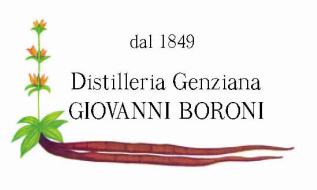The gentian spirit distiller
That of the gentian spirit distiller was an unusual profession. In order to practise this profession, the origins of which date back to the early 19th Century, special permission from the municipality was necessary. It was just such a permit that allowed the ‘foreigner’ Martino Breitenbergher to practice this trade.
According to a document dated May 4th, 1830, a certain “Teresa, widow of Giuseppe Boroni, an inhabitant of Bocenago and mother of five children, all of whom minors, in order to earn the keep of herself and her children, practices, during the summer, the trade of the distiller of gentian spirit (an aqueous spirit produced from the root of the gentian plant). She maintains a shed erected for this purpose in the environs of the mountainous area known as Stablo Porcile or Covel, which belongs to the Municipality of Pelugo, wherein she gathers the aforementioned roots and where she has conducted this trade for a number of years”. After this premise, Teresa writes: “It has come to her knowledge that the Municipality of Pelugo has secretly conceded the rights for the use of the aforementioned location for the same purposes to an outsider, thus depriving her and any other native inhabitant of the opportunity to bid for said permission. The undersigned is not asking for preference but, rather, is willing to offer a higher price. Should this not suffice, as there is no other means for her to obtain permission to gather the aforementioned root in this location, the undersigned implores the aforementioned Imperial Court to order the Municipality of Pelugo to place the said rights on public auction so that she may also make her own bid in the proper manner”.
The response to this request was that this mountain area had been leased for eight years to a certain Domenico Alberti of Verdesina who, in 1828 and after obtaining the approval of the Municipality, had authorised the aforementioned ‘foreigner’ to conduct the activities described. As a consequence, the ‘foreigner’ was entitled to do so, and Mrs. Boroni would therefore have to ask permission from the lessor Alberti.
While it is not known how this particular story ended, we do know that in 1852, the “right to excavate and distil all the gentian roots found on Alpe Covel during the current summer season” was conceded to Giacomo and Giuseppe Boroni of Borzago, and that they were also granted permission to “construct a small hut for themselves to live in at the aforementioned location of Stablo Porcile”. Throughout the Nineteenth Century, the Boroni family and their descendants would continue to obtain this special dispensation. In 1884, permission was granted to Cesare Boroni for a sum of 190 Florins per year, allowing the Boroni to continue to gather roots and produce gentian spirit up to the end of the 19th Century.
Excerpts from: “Danilo Mussi, “In Villa Pellugi.... Magnifica Communitas Vallis Randenae”, pages 489 – 490
That of the gentian spirit distiller was an unusual profession. In order to practise this profession, the origins of which date back to the early 19th Century, special permission from the municipality was necessary. It was just such a permit that allowed the ‘foreigner’ Martino Breitenbergher to practice this trade.
According to a document dated May 4th, 1830, a certain “Teresa, widow of Giuseppe Boroni, an inhabitant of Bocenago and mother of five children, all of whom minors, in order to earn the keep of herself and her children, practices, during the summer, the trade of the distiller of gentian spirit (an aqueous spirit produced from the root of the gentian plant). She maintains a shed erected for this purpose in the environs of the mountainous area known as Stablo Porcile or Covel, which belongs to the Municipality of Pelugo, wherein she gathers the aforementioned roots and where she has conducted this trade for a number of years”. After this premise, Teresa writes: “It has come to her knowledge that the Municipality of Pelugo has secretly conceded the rights for the use of the aforementioned location for the same purposes to an outsider, thus depriving her and any other native inhabitant of the opportunity to bid for said permission. The undersigned is not asking for preference but, rather, is willing to offer a higher price. Should this not suffice, as there is no other means for her to obtain permission to gather the aforementioned root in this location, the undersigned implores the aforementioned Imperial Court to order the Municipality of Pelugo to place the said rights on public auction so that she may also make her own bid in the proper manner”.
The response to this request was that this mountain area had been leased for eight years to a certain Domenico Alberti of Verdesina who, in 1828 and after obtaining the approval of the Municipality, had authorised the aforementioned ‘foreigner’ to conduct the activities described. As a consequence, the ‘foreigner’ was entitled to do so, and Mrs. Boroni would therefore have to ask permission from the lessor Alberti.
While it is not known how this particular story ended, we do know that in 1852, the “right to excavate and distil all the gentian roots found on Alpe Covel during the current summer season” was conceded to Giacomo and Giuseppe Boroni of Borzago, and that they were also granted permission to “construct a small hut for themselves to live in at the aforementioned location of Stablo Porcile”. Throughout the Nineteenth Century, the Boroni family and their descendants would continue to obtain this special dispensation. In 1884, permission was granted to Cesare Boroni for a sum of 190 Florins per year, allowing the Boroni to continue to gather roots and produce gentian spirit up to the end of the 19th Century.
Excerpts from: “Danilo Mussi, “In Villa Pellugi.... Magnifica Communitas Vallis Randenae”, pages 489 – 490
